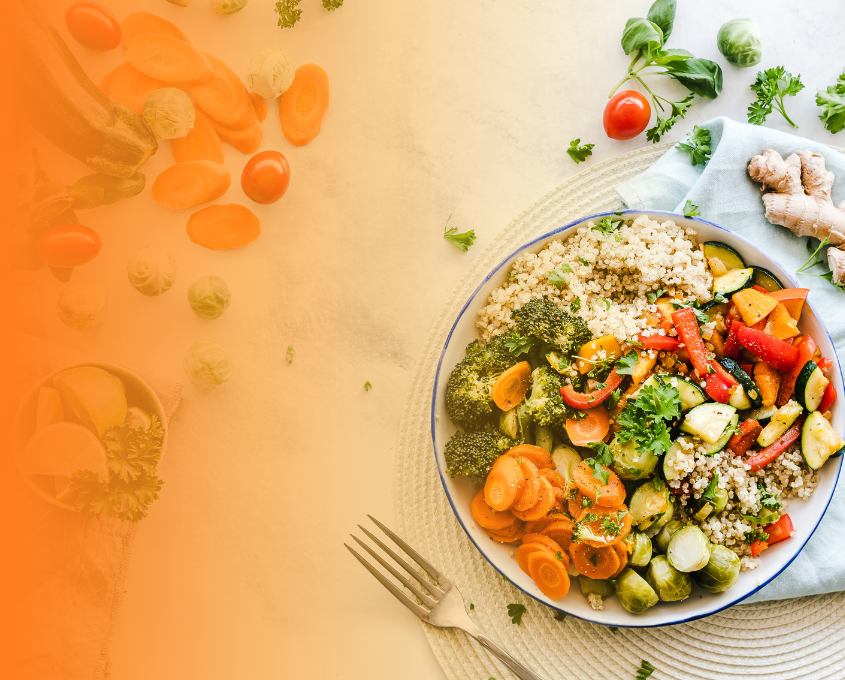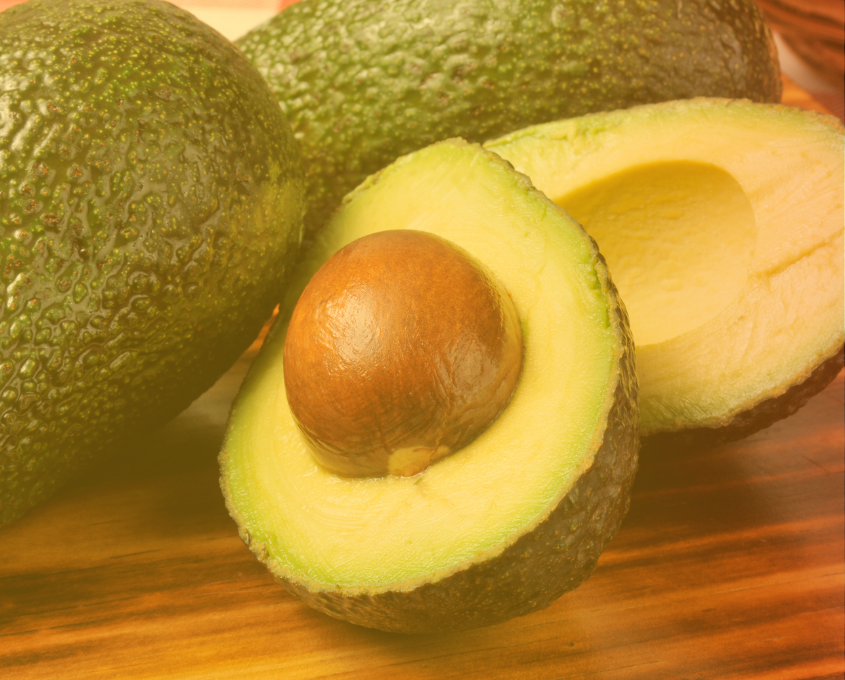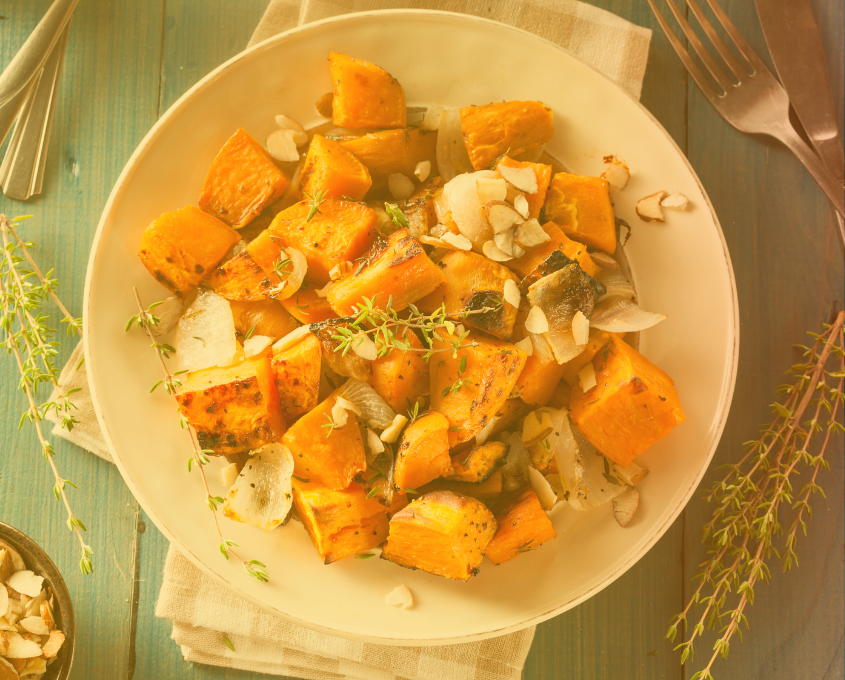Food Equals Fuel: Understanding How Food Boosts Our Energy
From giving your hardest efforts in the gym, to scrolling through your phones, or even having a good night’s sleep, your bodies will continue to consume energy. And for your bodies to provide enough energy, you must consume the right food to fuel you for life’s everyday activities.
Food is more than just flavor and presentation. Food is fuel; a source of energy affects all aspects of your life. This article will help you easily understand the essential nutrients in food that give you energy, and the types of foods that increase and decrease your energy levels.

The Fuel in Food
Everything that we consume gives us energy in the form of calories, but not all foods affect our energy levels the same way. The first thing that you need to know is that our bodies mainly get energy from three macronutrient sources: carbohydrates, proteins, and fats.


Fats
Fat is the most concentrated form of energy that we store in our bodies, and our bodies store excess fat to use for energy later on. The fat stored in your bodies contributes to controlling temperature by keeping our bodies warm, while at the same time protecting our nerves and vital organs. Most importantly, fat stores essential fatty acids and fat-soluble vitamins.
Protein
Composing of 50% your dry body weight, protein is used to repair and build our muscle and blood cells. Unlike fat, protein is not stored in your body, which means protein should be consumed daily.
When you lack carbohydrates in your diet, protein will be turned into carbohydrates for energy. On the other hand, when you eat too much protein, the excess will be stored in your muscles as fat for energy. Consuming good quality protein is needed especially if you exercise regularly for muscle development and recovery


Carbohydrates
Out of all three macronutrients, carbohydrates are the most important. Carbohydrates, or carbs, are the body’s primary energy source. Without carbohydrates, both protein and fats would not do their functions properly.
Just like in the food pyramids that you were shown as kids, carbohydrates form the foundation of every basic diet, making them the human body’s preferred and most essential source of energy.
However, not all carbohydrates are the same. They can be categorized as simple and complex carbohydrates, and can affect our energy levels in different ways.
The Difference Between Simple and Complex Carbohydrates
Simple carbs are made up of one or two sugar molecules and can be easily digested and used for energy. Although simple carbs may be easy to digest, its fast digestion can result in a rapid rise in your sugar levels, and often would lead to a crash, making you feel sluggish and drained.

On the other hand, complex carbs contain three or more sugar molecules. Complex carbs are typically rich in fiber, and because of their complex structure, they usually take a longer time to digest resulting in a more gradual rise in sugar levels.
To put it simply, simple carbs can be digested easily and can give you a quick boost of energy, but are later followed by a crash and feelings of sluggishness. Complex carbs take longer time to digest but give you a constant supply of energy and keeps you steady throughout the day.
Foods that Increases Your Energy
These foods are some of the best sources of complex carbohydrates, proteins and fats, and are sure to keep our energy levels steady and going especially when we need it most.

- Oatmeal. As long as they’re not packed with sugar, oatmeal is a good source of slow-burning complex carbs. It also boosts serotonin to help you manage stress and enhance learning.
- Bananas. Full of potassium, complex carbohydrates, and vitamin B6, bananas are one of the best sources of energy that you can grab and eat even on the go.
- Avocados. Loaded with fiber, B vitamins, good fats, and fatty acids, avocados are a superfood that promotes healthy blood-fat levels and absorption of nutrients.
- Brown Rice. Since it is less processed compared to white rice, brown rice is able to retain the vitamins, fiber, and minerals that it naturally contains. Brown rice is a great staple for your daily diet, providing solid complex carbs to keep your energy steady.
- Sweet Potatoes. Containing loads of iron, magnesium, and vitamin C, sweet potatoes are a reliable source of complex carbs that you can eat with your meals or as a snack.
- Fatty fish. Seafood is one of the major sources of omega-3 fats, vitamin D, selenium, protein, and are also low in saturated fats. Eating fish has many benefits aside from its nutritional value, which includes benefits for your heart and blood vessels.
- Lean proteins. Meats such as chicken, fish, and turkey are a great source of protein with less saturated fats. These protein sources are great options for exercise when it comes to building and repairing muscle.
- Fresh fruits and vegetables. Fresh food means it contains nutrients, thus making it more nutritious and valuable. Carrots, broccoli, eggplant, and cauliflower are among the best high-fiber foods that you can find, as well as fruits that are ripened and in-season.
- Eggs. Aside from being packed with protein, eggs are also rich in B vitamins and leucine, an amino acid that contributes to energy production. All of these nutrients play a huge role in breaking down foods and turning them into energy.
- Water. Though water contains zero calories for energy, it certainly helps in the different energy processes in our bodies. We need water for optimum function, and drinking water as much as we can throughout the day will transform the way we feel and make us more energetic.
Foods that Can Decrease Your Energy
Naturally, eating a meal or a snack would refuel you for any upcoming task or activity. However, there are certain types of foods that actually drain your energy. Some of these foods can provide energy in some form, but will end up leading you to feel sluggish, unenergized, and drained.

- Processed grains such as white bread, pasta, and rice. Processed grains are stripped off of essential nutrients. Because of its low levels of fiber, processed grains are digested quickly, but can cause a rise and crash in our blood sugar, dropping our energy levels as mentioned in the simple carbs above.
- Foods with added sugars. Foods such as breakfast cereals, energy bars, and yogurt contain very little fiber yet are full of added sugars that spike your blood sugar and insulin levels and is eventually followed by a crash in energy.
- Coffee. When consumed in moderation, coffee can be a good boost of energy when we feel tired. However, when you consume too much coffee, it’s possible to neglect proper nutrition and can affect our quality of sleep.
- Fried food. Besides being low in essential vitamins and minerals, fried foods are high in fat but low in fiber. Consuming these foods slow down your digestion, delaying the increase in energy in our bodies. Fast food also causes you to feel overly full, making you feel sluggish to do any task.
- Energy drinks. Just like the case with coffee and foods with added sugars, energy drinks give a short-term boost in energy. Some energy drinks also contain high amounts of caffeine and sugar with low amounts of essential nutrients, making it an unhealthy option whenever you need energy.
- Alcohol. Large amounts of alcohol are shown to reduce the quality and duration of sleep, leading you to feel unrested and groggy in the morning. Although it makes you feel relaxed and fall asleep easily, only low to moderate amounts of alcohol can be advised to avoid these energy-draining effects.

Understanding how food fuels your body is indeed essential, since what you eat dictates the energy that you put out in your everyday activities. It’s also important to know all bodies are different and how you react to different types of food may vary as well, so it can be advised to consult a healthcare professional to learn what works best for you.
More importantly, a good diet won’t work as much if you neglect sleep, hydration, and exercise. Make sure to prioritize rest and recovery, stay properly hydrated, and exercise regularly to further maintain and increase your energy levels.
Lastly, don’t limit yourself too much. Enjoy what you eat, but be sure to make conscious choices of what you put into your body. Remember, food is energy, and energy is everything.